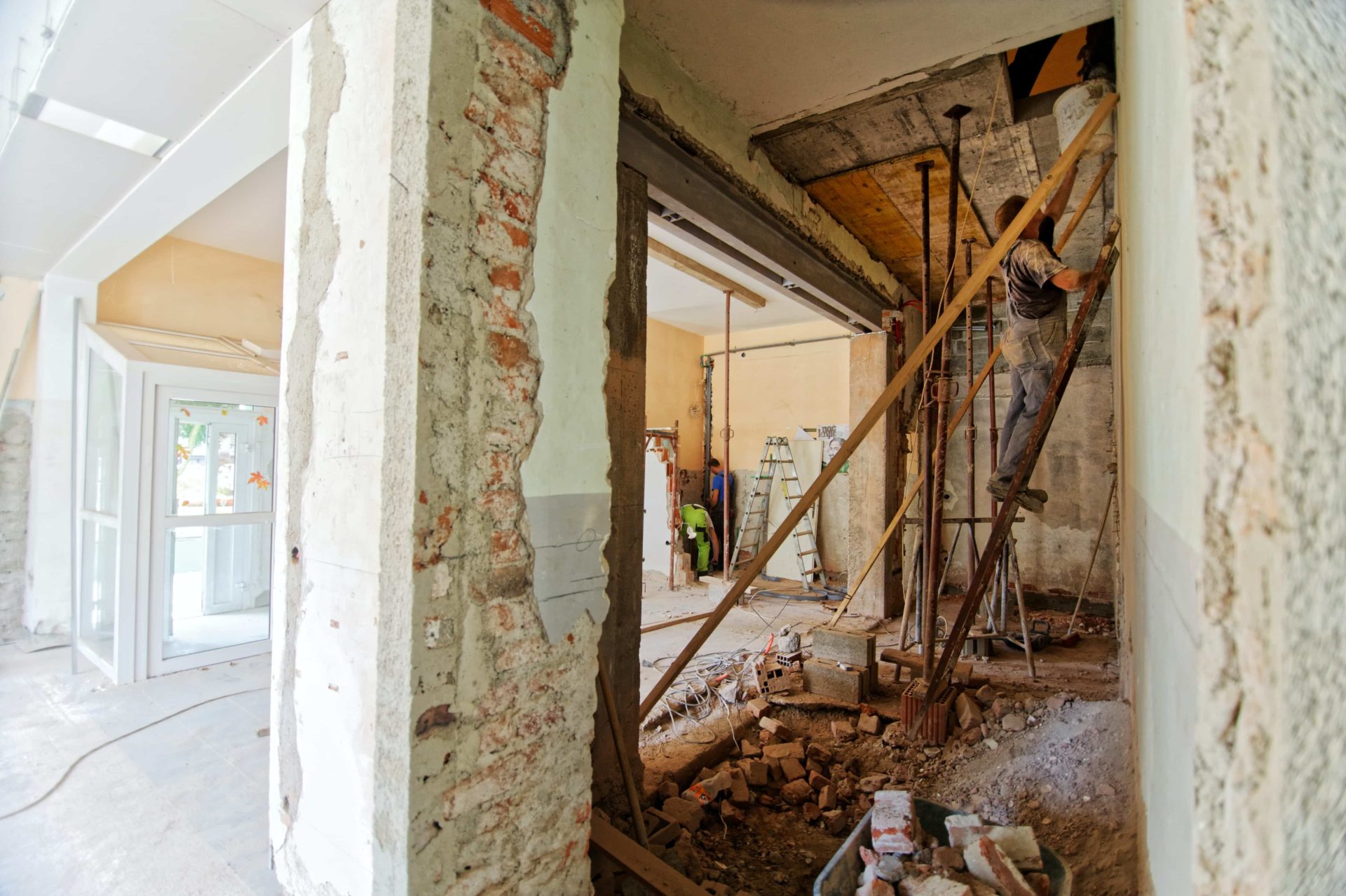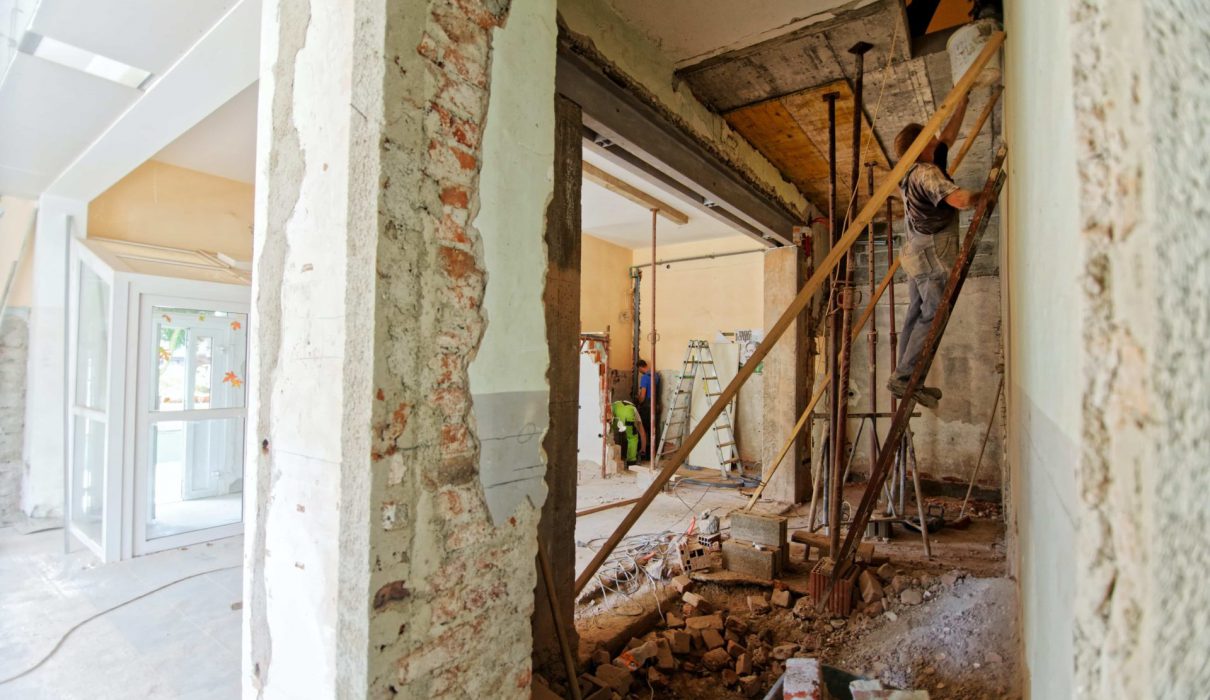
Home renovations can overwhelm the most cost effective of homeowners. Renovations can grow bigger and more complicated with every step, and you'll end up with a higher total cost than you planned. However, using the right tools to approach financing your home renovations and plan expenses, the greater chance you have to stay close to the initial estimate.
In this short article, we’ll discuss four steps for how to cover home renovations. From cosmetic fixes to full-on flips, you’ll gain insight into the very best ways to save money on this investment.
1) Choose Whether or not to Invest or DIY
First, you need to get a clear picture from the options you have for your planned renovations. This will help you determine if spending a lot of money is essential and see where you can reduce. Having a solid concept of what you want can help you avoid backtracking and redoing a few of the project later.
Before you start, think about the next three questions:
- Which room would you like to renovate?
- Is this cosmetic or a complete rehaul?
- How much money are you prepared to spend?
If you’ve remarked that you’re looking for a deeper makeover, your next step would probably be to speak to an expert and get an estimate for the work that should be done.
However, you may choose that it’s possible to do some from the easier tasks yourself. Or, maybe you’re willing to accept fewer renovations than you originally planned and that you can do the majority of the focus on your own. Even the smallest DIY tasks, like handmade molding and tiling, can save you money in the long term.
2) Create a Renovation Budget
Even should you get into your renovation project with a goal to chop costs, it’s easier to overspend on home improvement than you believe. So while you obviously want your the place to find look its best and improve your value on the housing market, you must prepare to make some tough decisions in case you need to lower your budget.
When you are looking at your budget, you have to account for three main factors:
- How complex your project is
- The price of materials and labor
- How much the homeowner would like to do themselves
However, where you are will also affect your financial allowance. For example, spending $50,000 on your kitchen inside a neighborhood of $100,000 homes won’t just end up being a waste of money, but you’ll wind up pricing yourself too much of your own community.
The key is not to spend more but to invest wisely, and evaluate the best rate for every room based on the home’s overall value. For instance, if you’re renovating your kitchen, it should cost no more than 15% of your home value.
3) Receive an Estimate
After you budget, you’ll want to talk to multiple contractors and compare their quotes together with your estimate. Having anywhere from 3 to 5 contractors meet personally at your house . to evaluate the space is recommended, so you can figure out which is going to be perfect for that which you are thinking about.
Keep in mind that you’ll also need to element in potential setbacks included in the estimate. Any experienced contractor will explain that home rehabilitation projects more often than not take more time than planned and price a lot more than that which was expected, so allow a little flexibility in your budget and your project timeline.
4) Seek Additional Financing Options
After you’ve budgeted and received a reasonable invoice, you might realize that you've got no other choice but to seek additional financing options for your project.
Luckily, there are several methods for you to finance any project affordably, depending on your savings, income, and resources. Here are the four best options for how you can purchase home renovations.
Home Equity Loan
Sometimes referred to as a second mortgage, a house equity loan is a well-liked option for homeowners figuring out how to purchase renovations. This loan pays to you inside a one-time sum which you repay over a set number of years through monthly, fixed costs.
In general, you need to meet the following qualifications that need considering for any home equity loan:
- Have a FICO score above 620
- Have evidence of steady income and/or employment
- Have a low debt-to-income ratio
- Have paid a minimum of 15% of the mortgage
The good news is, market fluctuations won’t change your rate of interest. So, if you have no shocks of your project plus some steady income, a house equity loan is a great option.
Once you’ve chosen to leverage your house equity loan, it’s an easy process:
- Make sure you meet the qualifications
- Select your lender
- Submit an application
- Have your home evaluated
- Wait for your lender to vet your qualifications and property
- Close on your loan
Renovation Loan
A renovation loan is another choice for homeowners who are budgeting for home renovations. This loan is a Fannie Mae-style loan specifically designed for home rehabilitation projects since the amount homeowners can borrow is based on the future property value after renovations.
With this kind of loan, you're permitted to have a higher debt-to-income ratio along with a lower credit score. However, you need to do have to place a 3% deposit and subscribe to mortgage insurance.
401(k) Loan
Most 401(k) programs permit you to borrow a certain percentage of the balance, but there are some drawbacks. Since withdrawing from these accounts is discouraged, there's often a very high fee for doing this. You will also need to pay interest on this withdrawal and also have it paid entirely within five years.
Since these are also determined by your employment, it’s dangerous to depend on. Should you leave or lose your job, you could end up paying a 10% tax penalty.
Personal Loan
When determining how you can purchase home renovations, taking out a personal loan may be a wise decision if you only need a small amount. They even convey more savings than using a credit card since unsecured loans have a tendency to offer lower rates.
Ready to invest in Your Home Renovation?
Now that you’ve familiarized yourself using the planning process with your finance options, it’s time for you to obtain the process started and start financing.
Contact our team at Associates Home Loan of Florida, Inc. to explore loans and also the loan approval process for home renovations. We’re pleased to learn more about any project and discuss several ways you could finance your renovations this year.


